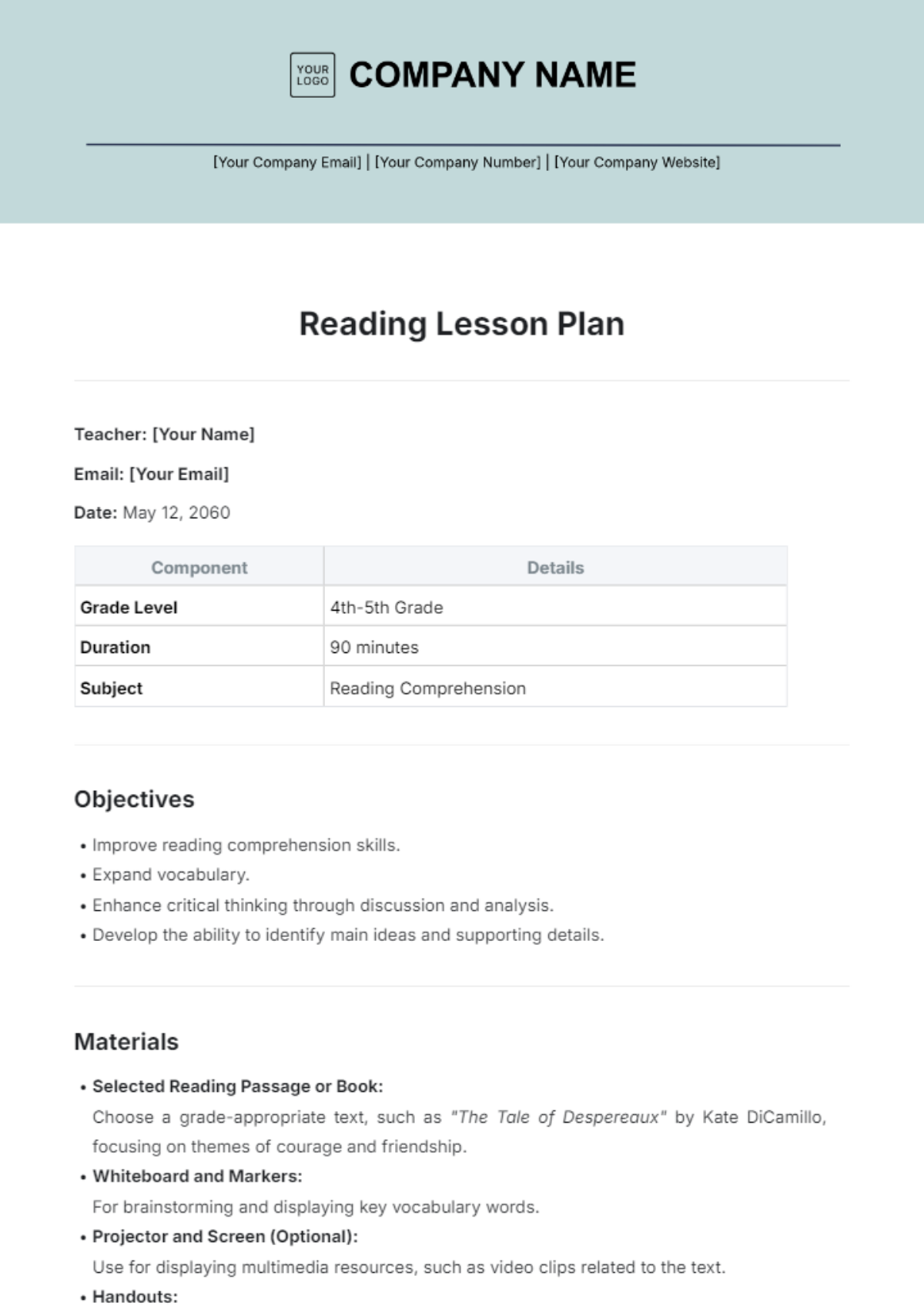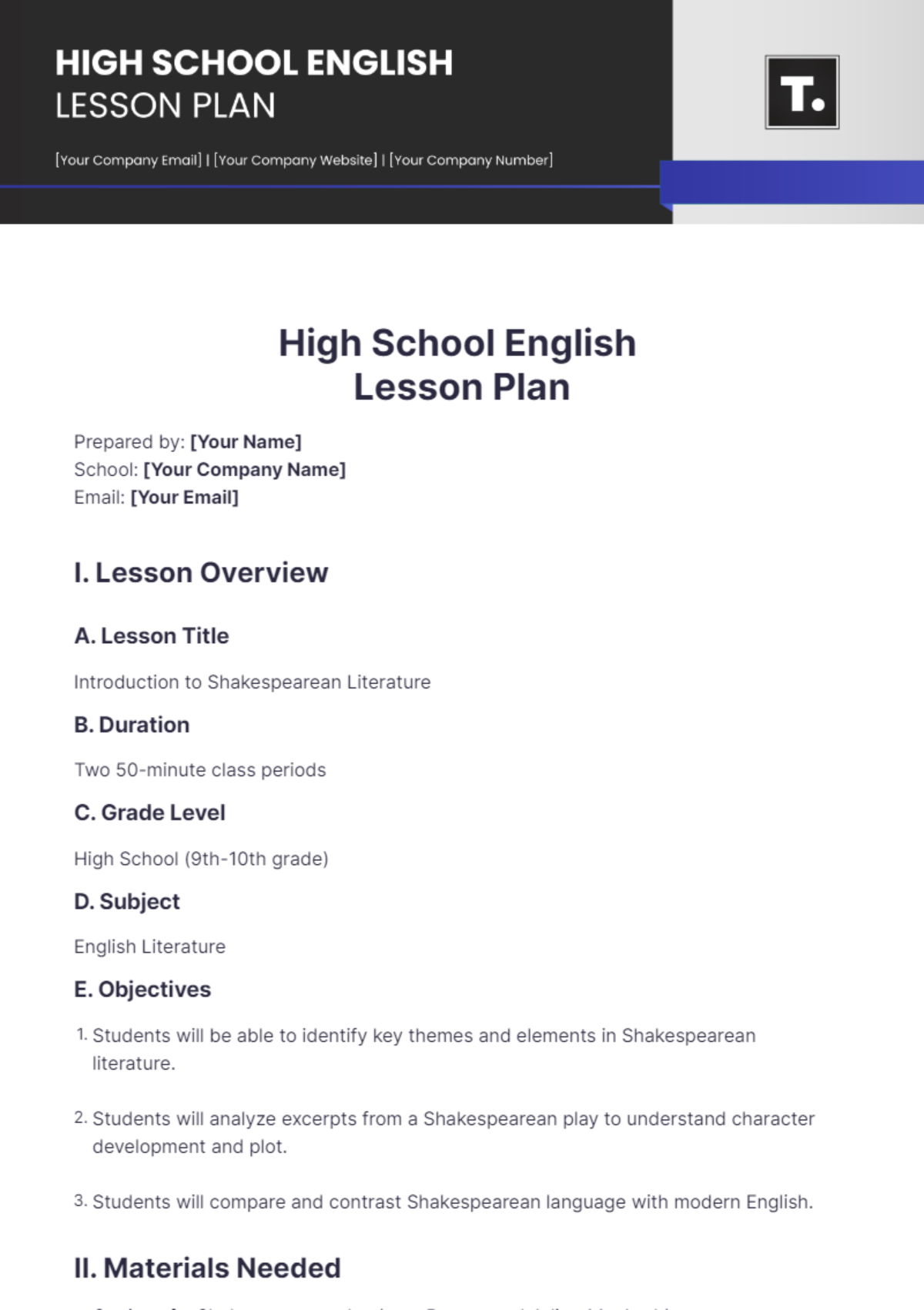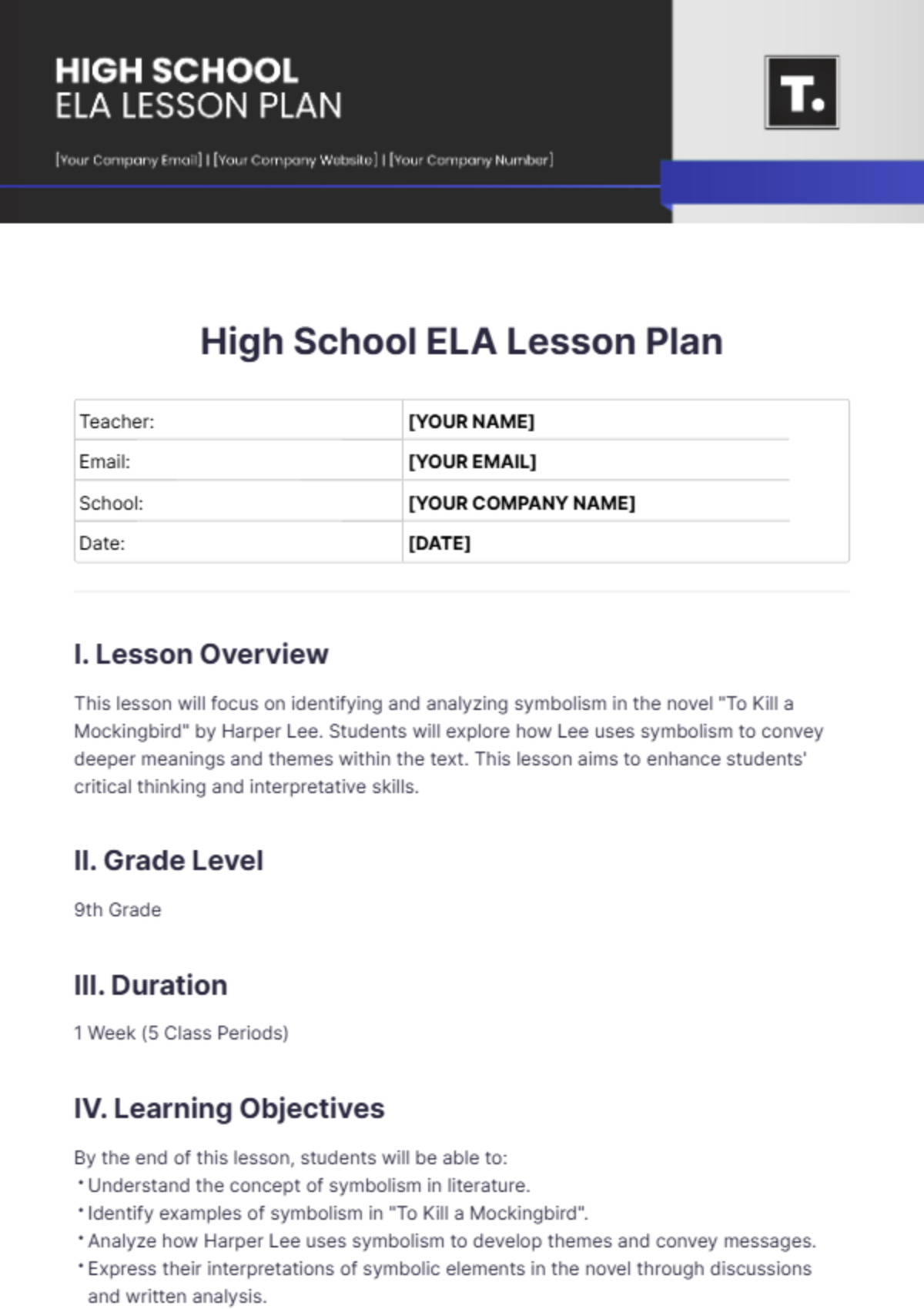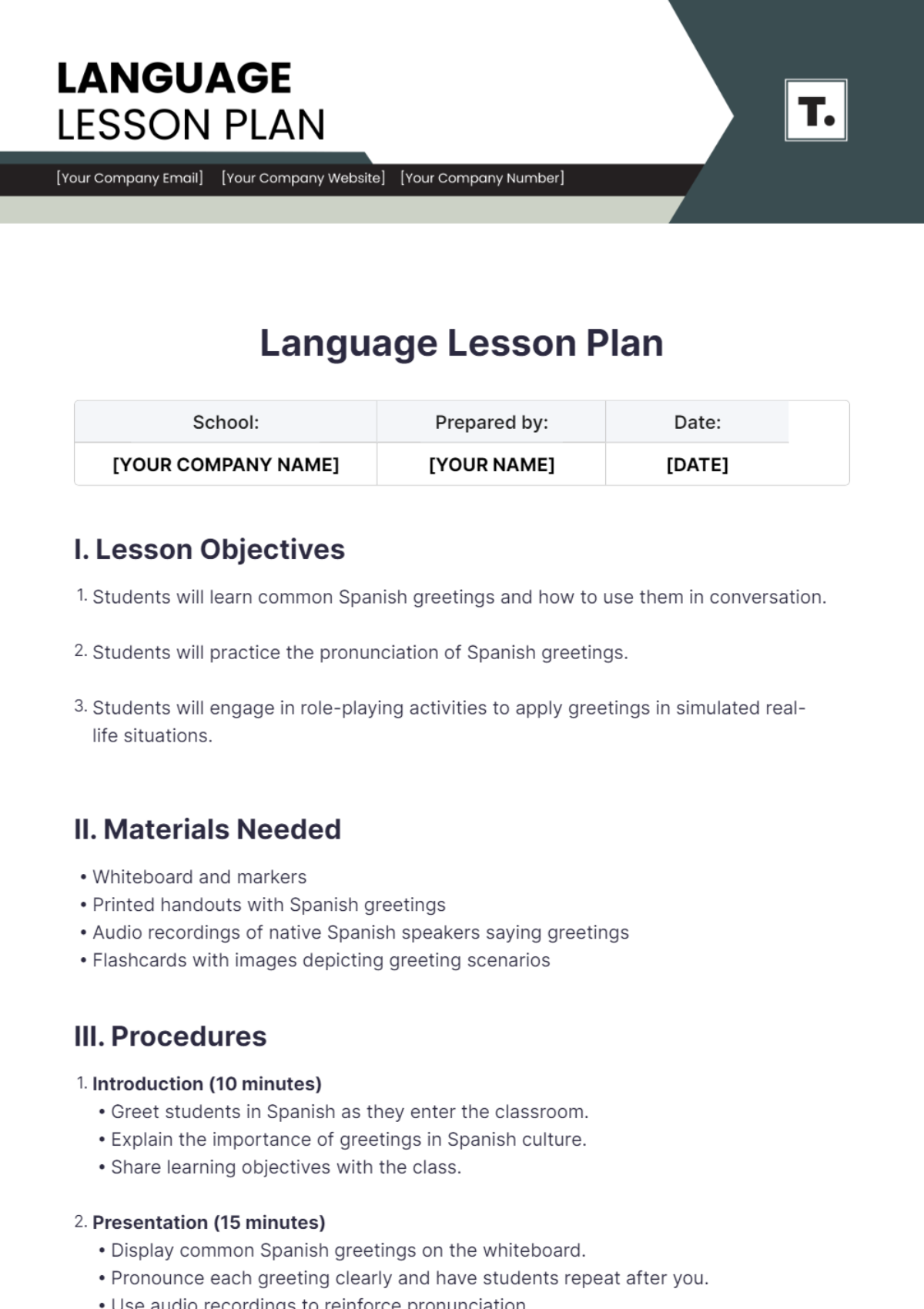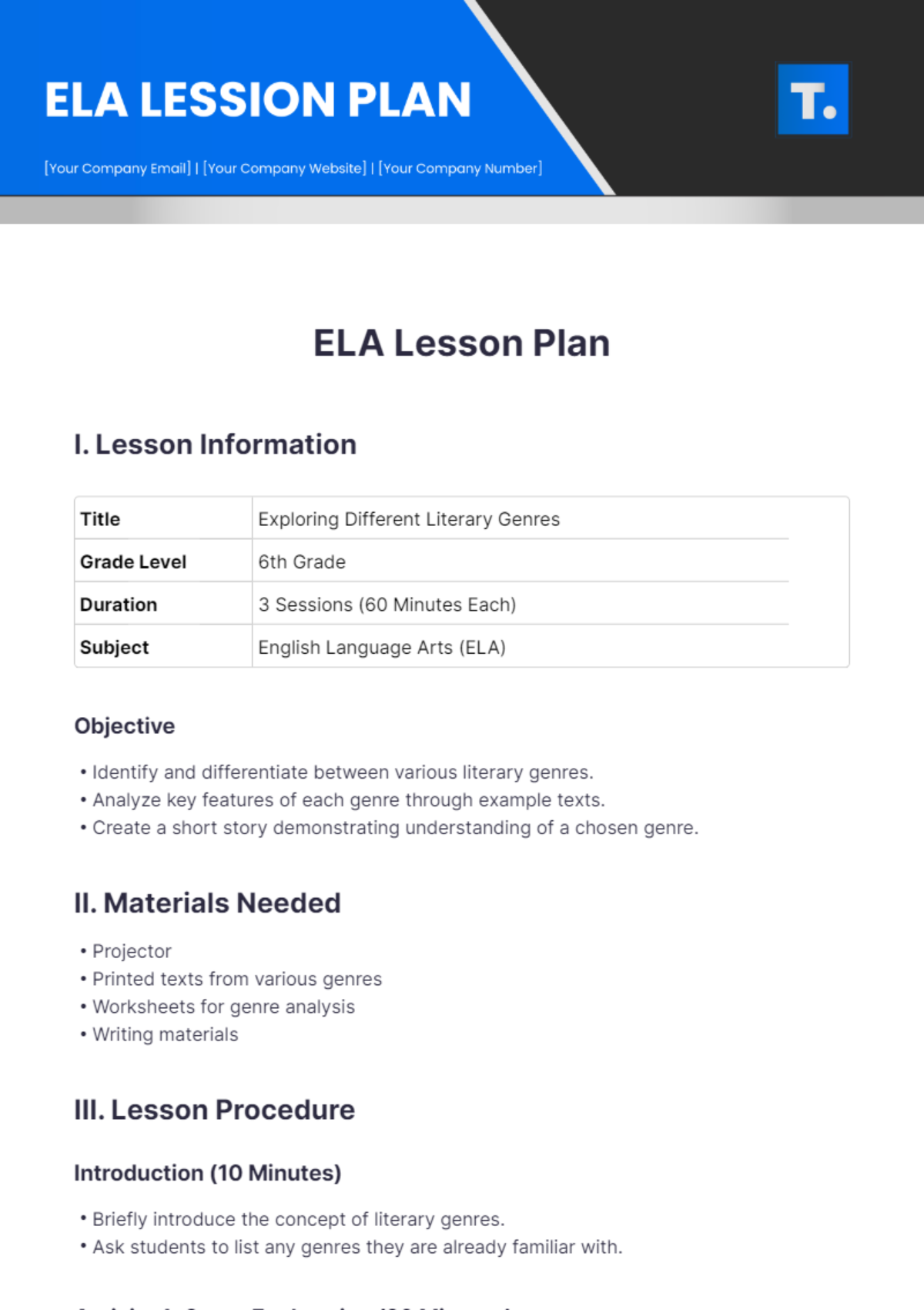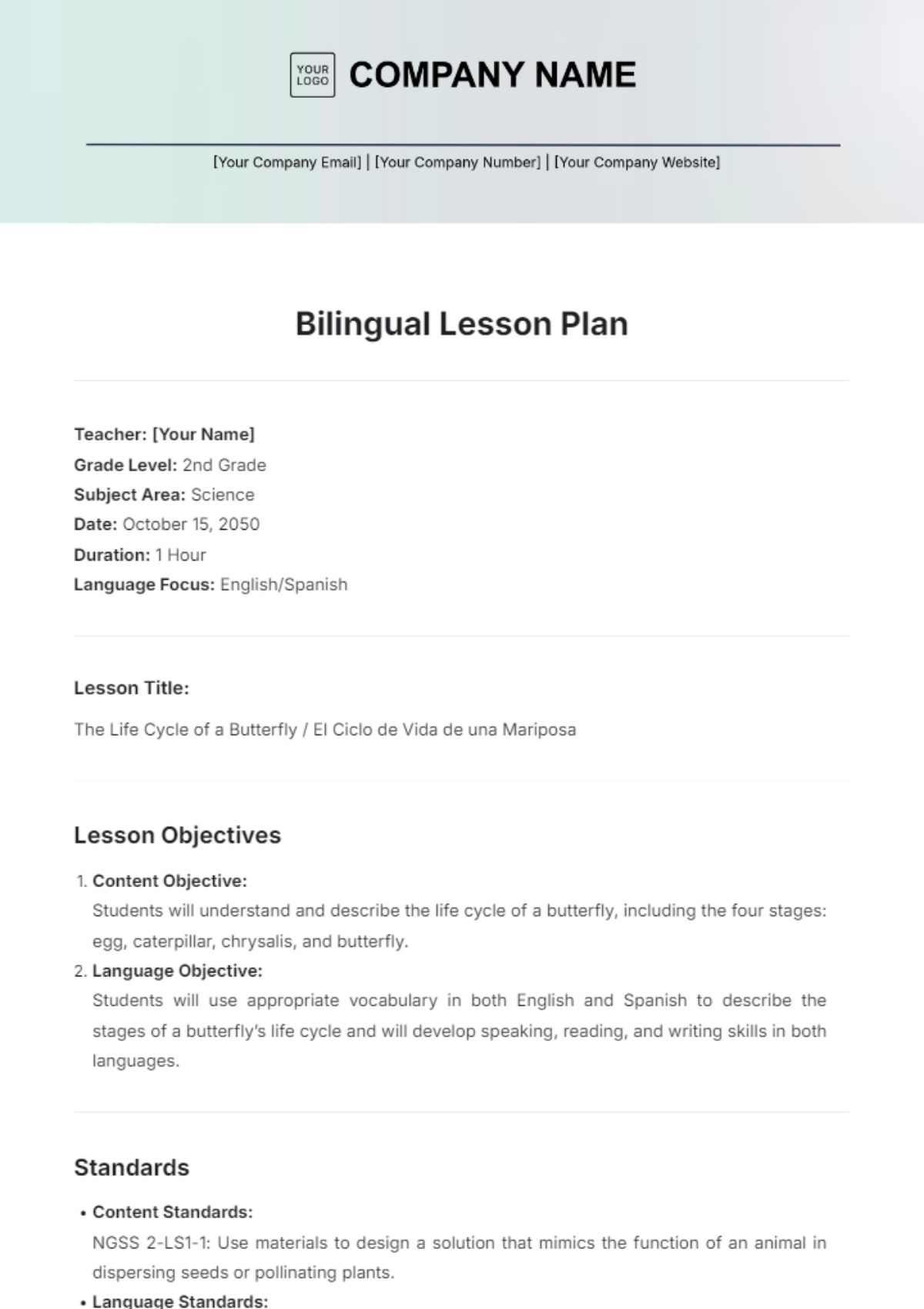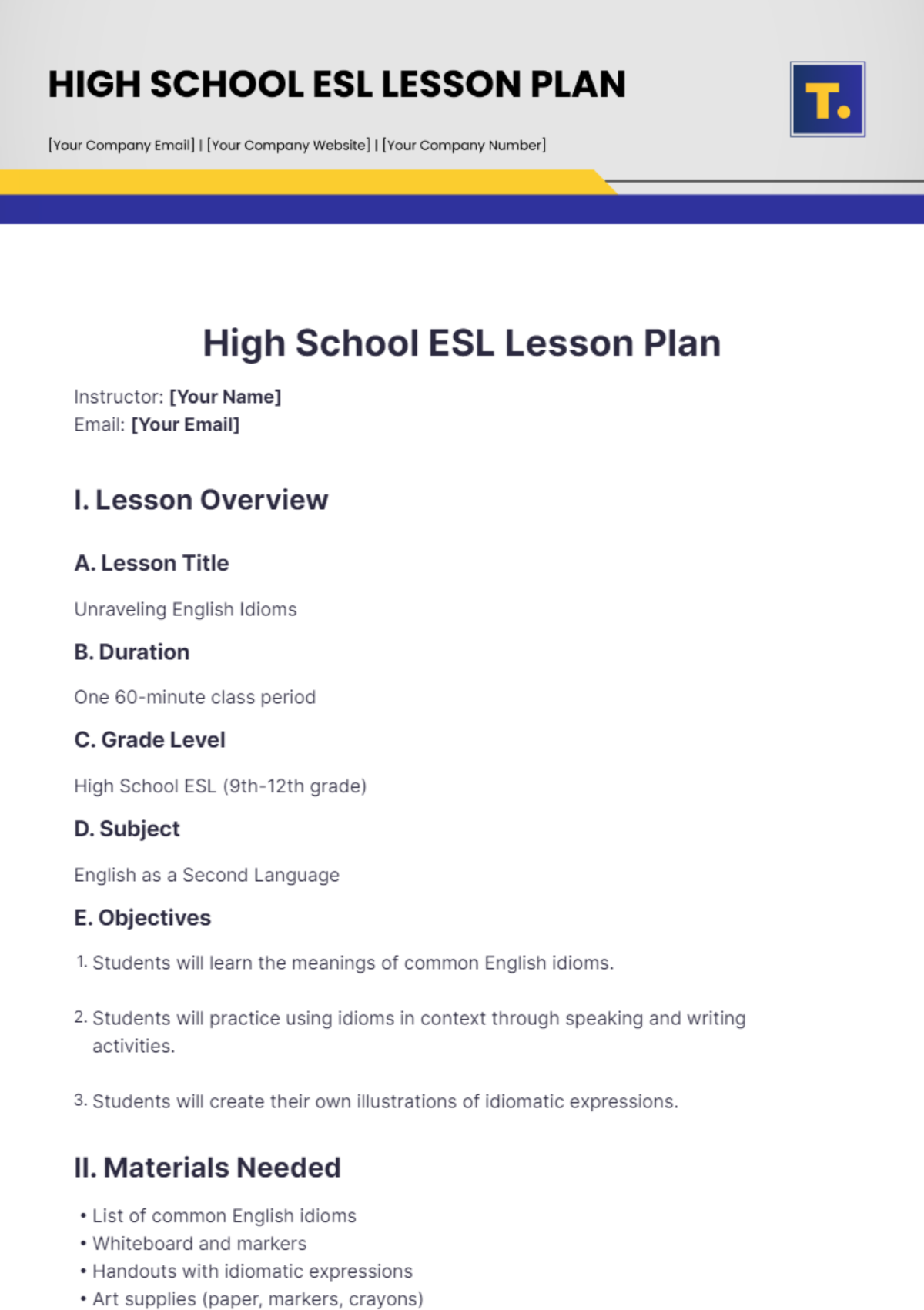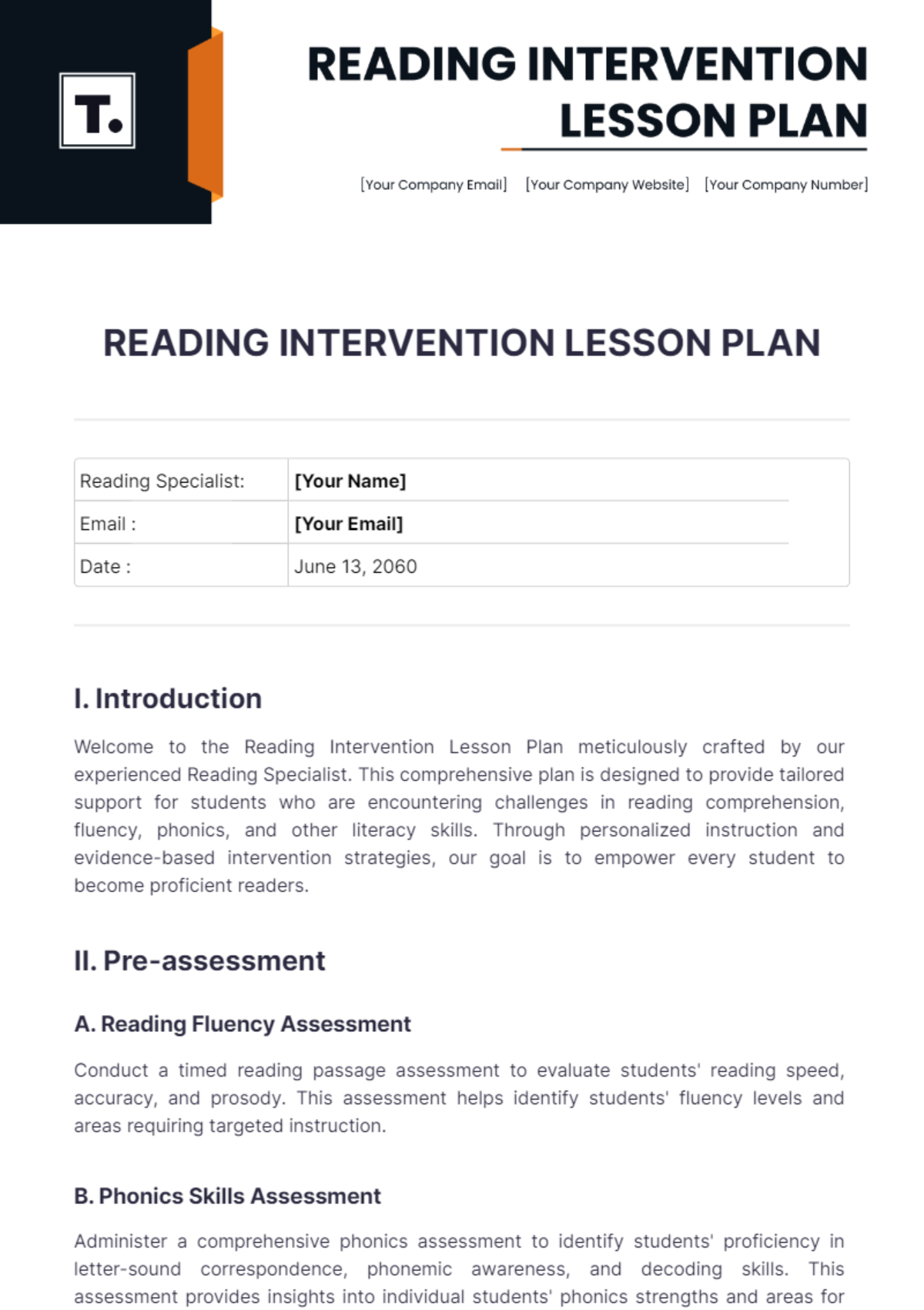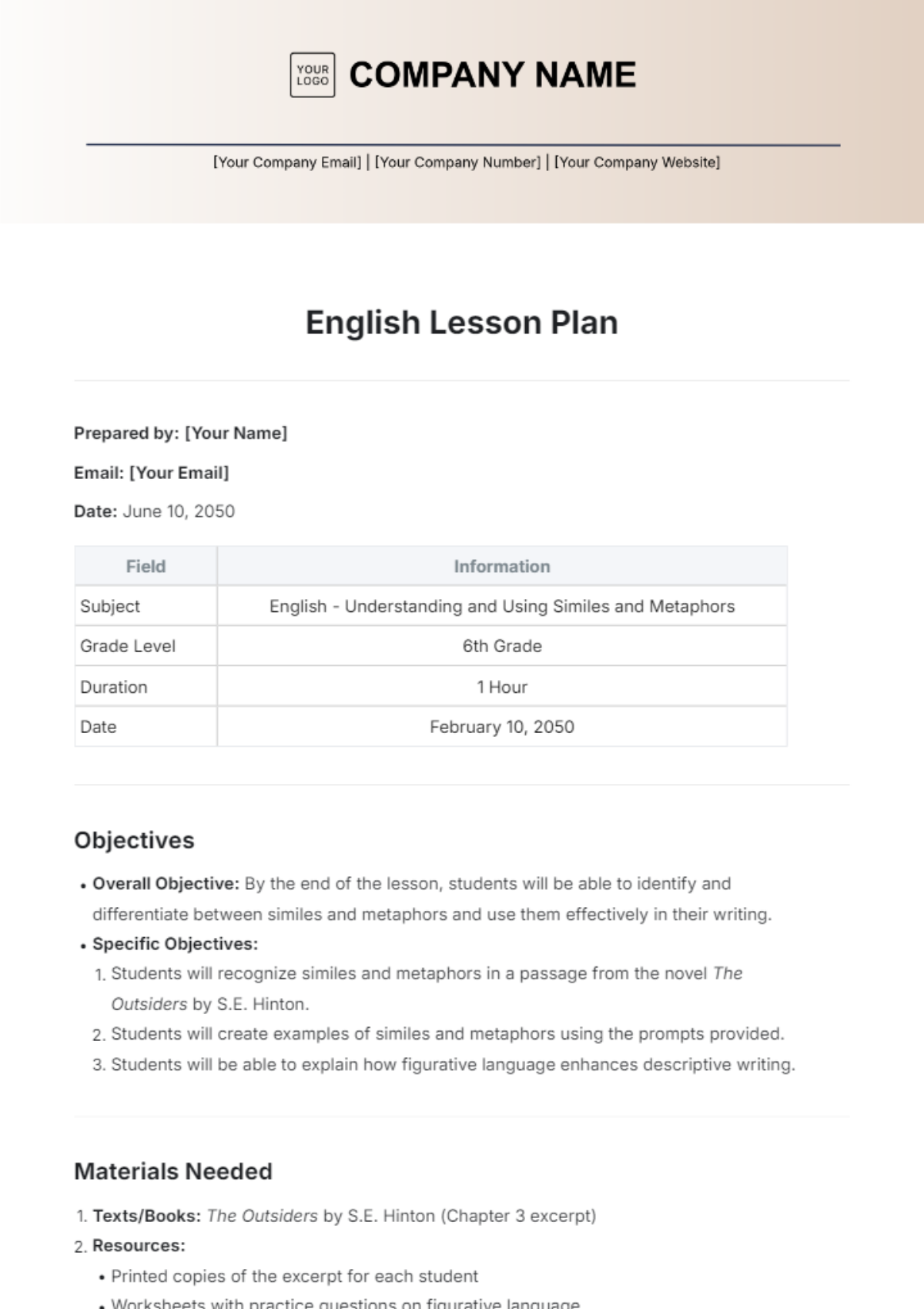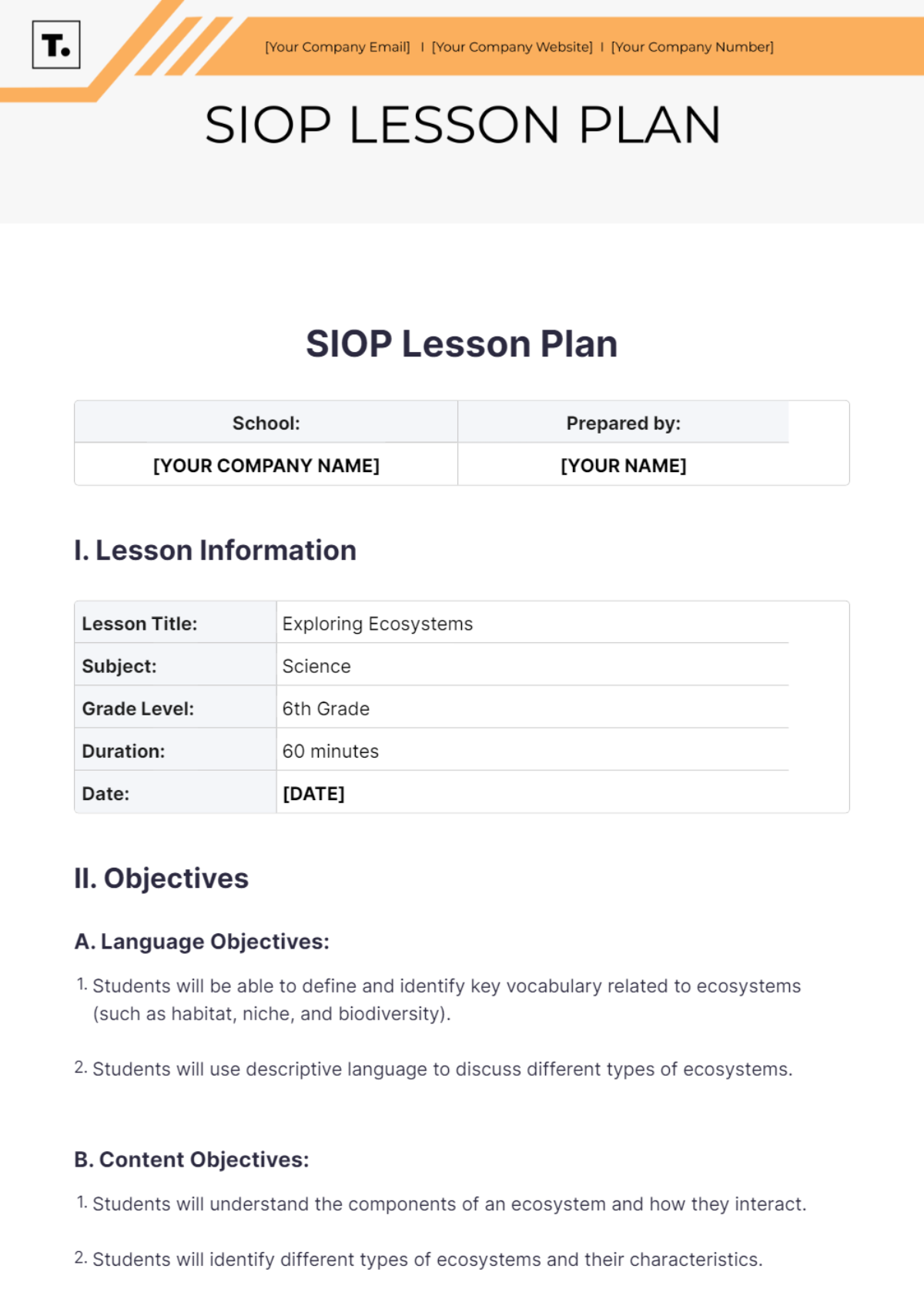READING INTERVENTION LESSON PLAN
Reading Specialist: | [Your Name] |
Email : | [Your Email] |
Date : | June 13, 2060 |
I. Introduction
Welcome to the Reading Intervention Lesson Plan meticulously crafted by our experienced Reading Specialist. This comprehensive plan is designed to provide tailored support for students who are encountering challenges in reading comprehension, fluency, phonics, and other literacy skills. Through personalized instruction and evidence-based intervention strategies, our goal is to empower every student to become proficient readers.
II. Pre-assessment
A. Reading Fluency Assessment
Conduct a timed reading passage assessment to evaluate students' reading speed, accuracy, and prosody. This assessment helps identify students' fluency levels and areas requiring targeted instruction.
B. Phonics Skills Assessment
Administer a comprehensive phonics assessment to identify students' proficiency in letter-sound correspondence, phonemic awareness, and decoding skills. This assessment provides insights into individual students' phonics strengths and areas for improvement.
C. Comprehension Assessment
Utilize a variety of comprehension assessments, including multiple-choice questions, short answer responses, and retelling tasks, to evaluate students' understanding of texts. By assessing students' comprehension abilities, we can identify specific comprehension strategies and skills that require reinforcement.
III. Materials
A. Texts and Reading Materials
Curate a diverse selection of fiction and non-fiction texts at various reading levels to cater to the individual needs and interests of students. These materials serve as the foundation for targeted instruction and practice in reading comprehension.
B. Phonics Manipulatives
Engage students in hands-on phonics activities using manipulatives such as letter tiles, word cards, and phonics games. These interactive materials help reinforce phonics concepts and support multisensory learning experiences.
C. Graphic Organizers
Provide graphic organizers such as story maps, Venn diagrams, and cause-and-effect charts to scaffold students' comprehension and critical thinking skills. Graphic organizers offer visual representations that assist students in organizing their thoughts and making connections within texts.
IV. Instructional Activities
Time | Activity | Description |
|---|---|---|
10:00 am - 10:15 am | Warm-up Activity | Engage students with a brief reading passage and discussion to activate prior knowledge and set the context for learning. |
10:15 am - 10:45 am | Phonics Instruction | Deliver explicit phonics instruction using a variety of instructional strategies, including direct teaching, modeling, and guided practice. Utilize visual aids and manipulatives to reinforce phonics concepts. |
10:45 am - 11:15 am | Guided Reading | Facilitate small group reading sessions focused on applying comprehension strategies, vocabulary development, and fluency practice. Provide targeted support and feedback to individual students based on their needs. |
11:15 am - 11:45 am | Independent Practice | Offer opportunities for students to engage in independent reading activities, response writing, or word work exercises tailored to their skill levels. Monitor and support students as they apply learned strategies independently. |
11:45 am - 12:00 noon | Closure and Review | Summarize key concepts covered during the lesson, review learning objectives, and provide feedback to students. Encourage reflection on progress and set goals for future learning. |
V. Assessment
Assessment Type | Description |
|---|---|
Reading Fluency Checks | Administer regular fluency checks to monitor students' progress in reading fluency and identify areas for improvement. |
Comprehension Quizzes | Conduct periodic comprehension quizzes to assess students' understanding of texts and their ability to apply comprehension strategies. |
Phonics Skill Check | Evaluate students' mastery of phonics skills through informal observations, phonics assessments, and student work samples. |
VI. Reflection
As a Reading Specialist, reflect on the effectiveness of the lesson plan and instructional strategies employed. Analyze assessment data, student engagement, and progress to make informed decisions about intervention effectiveness. Collaborate with colleagues to refine instructional practices and continuously adapt interventions to meet the evolving needs of students.
